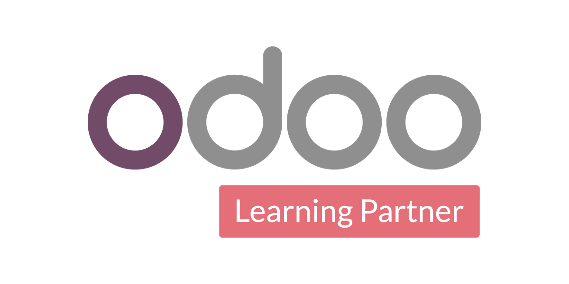In the rapidly evolving landscape of enterprise resource planning (ERP) systems, Odoo stands out for its flexibility and comprehensive suite of applications. However, customising such a powerful platform to fit specific business needs can be a daunting task. Fabian Pinckaers, the CEO and founder of Odoo, recently hosted a workshop titled "Methodology Workshop: Keeping Odoo Developments Under Control," aimed at addressing these challenges. This blog post delves into the workshop's key insights, strategies for managing custom developments, and practical advice for Odoo partners and developers.
The Essence of Controlled Development
Fabian began the workshop by emphasising the critical balance between meeting customer demands and ensuring project delivery within time and budget constraints. He argued that while customer satisfaction is important, it should not come at the expense of project feasibility. The workshop highlighted several key areas:
- Risks of Custom Development: Custom developments are often seen as necessary for tailoring Odoo to specific business processes. However, they come with their own set of risks, including cost overruns, extended timelines, and the burden of maintenance. Fabian pointed out that maintenance costs could triple the initial development cost over five years.
- Value vs. Cost: The workshop underscored the often disproportionate cost of custom development relative to the value it adds. For instance, while 20 days of business analysis might unlock 100% of Odoo's potential for a company, the same amount of time spent on development might only contribute to a fraction of that value.
"Consider that there is not only the cost of the initial development but also the maintainance...[which is] three times the initial cost over the span of five years"
Strategies for Minimising Development
A significant portion of the workshop was dedicated to strategies for minimising unnecessary custom development. Fabian introduced a pragmatic approach, encapsulated in a four-step framework from the "Implementation Methodology" book:
- Assessing Necessity: Before embarking on custom development, it's crucial to evaluate whether the feature in question is truly necessary. This involves considering whether the business can operate without the feature or if it's something that could be added in a later phase.
- Evaluating Cost vs. Benefit: It's essential to weigh the cost of development against the potential benefits. This calculation should factor in not just the immediate benefits but also the long-term impact on maintenance and scalability.
- Exploring Alternatives: Often, there are alternative solutions that can meet the business needs without requiring custom development. This might involve using existing Odoo modules in creative ways or adjusting business processes to align with Odoo's standard functionalities.
- Implementation Methodology: The workshop detailed the importance of having a structured methodology for implementing Odoo projects. This includes clear documentation, stakeholder engagement, and continuous evaluation of project goals versus outcomes.
View the Implementation Methodology book here
Key Highlights and Practical Advice
- Clear and Concise Specifications: One of the workshop's main takeaways was the importance of clear, visual specifications for development tasks. Fabian recommended using tools like Excalidraw and Flameshot to create mockups and annotations, making it easier for developers to understand the requirements and for clients to visualize the end result.
- Efficient Developer Hiring and Training: Fabian shared insights into Odoo's hiring and training process for developers. The company employs a rigorous pre-qualification process, including coding tests and interviews focused on logical reasoning and understanding of code. New hires undergo functional training to ensure they understand Odoo's business applications before moving on to development tutorials and real-world tasks.
- Balancing Development Resources: The workshop provided benchmarks for the ideal balance of developers to business analysts in Odoo projects. For small and midsize projects, a higher proportion of business analysts (85%) is recommended, while larger, corporate projects might require a more even split between developers and analysts.
Q&A Highlights
Q: Is the platform more oriented towards businesses, governments, and NGOs?
A: Yes, the platform is customized to align with the specific needs of businesses, governments, and NGOs.
Q: Do small and midsize companies usually need development on the platform?
A: Small and midsize companies typically don't need development, but larger projects, corporations, or government entities may require more development.
Q: Does creating a development branch from a production branch bring all the modules in production?
A: No, creating a development branch from a production branch does not bring all the production modules; it's meant to prevent developers from accessing production data.
Q: What is the pricing model for development?
A: Partners can choose their pricing model, but the platform itself always uses hourly pricing for development.
Q: Is planning and budgeting done for customer projects?
A: Yes, planning and budgeting are done for customer projects, but not for the platform's research and development, as it's seen as a waste of time.
Q: What advice is there for new partners looking to onboard with 10 licenses?
A: For companies with 10 employees, it's advised to use the platform standardly and minimize specific needs, as the platform is flexible enough for companies with less than 20 users.
Q: What is the role of the platform's Studio app in development?
A: 'Studio' is used for creating mockups, which saves time and can be integrated directly into development for annotation.
Q: How is automated code testing handled?
A: The platform provides thousands of default tests, and developers are encouraged to add their own tests to new modules for better code coverage and risk management.
Q: Does using Studio slow down the system?
A: No, Studio has no impact on the system's performance.
Q: What is the best strategy for adding criteria to a project?
A: It's advised to not do more than what the customer already has and to consider adding more complex features in a phase two to minimize development before going live.
Q: How can you convince a client when some custom development is not feasible?
A: Refer to the implementation book, specifically page 52, which provides a framework for challenging customer requests.
Q: How to manage cybersecurity?
A: There are webinars on security best practices available on the platform's YouTube channel.
Q: What are the limitations of using Studio?
A: Studio is ideal for projects with 5-10 days of development but may not be suitable for larger projects, which might require direct module development.
Q: Is there a new developer reference for QWeb templates?
A: Yes, the documentation includes a reference section for QWeb templates, and contributions to the documentation are welcomed via GitHub.
Q: How can one implement their own learning platform in the system?
A: It's possible to use the platform's e-learning features to implement a learning platform with employee grades and ranks, but creating content of high quality might be time-consuming.
Fabian's "Methodology Workshop: Keeping Odoo Developments Under Control" offers a wealth of knowledge for anyone involved in Odoo development and is well worth a watch.
The key to successful Odoo implementation lies in balancing customisation with practicality, ensuring developments are necessary, cost-effective, and add significant value. By adopting the strategies outlined in the workshop, developers and businesses can leverage Odoo's powerful capabilities while avoiding common pitfalls associated with custom ERP solutions. This approach not only ensures project success but also fosters long-term customer satisfaction and business growth.
Watch the workshop here:


Essential Insights from Methodology Workshop: Managing Odoo Developments